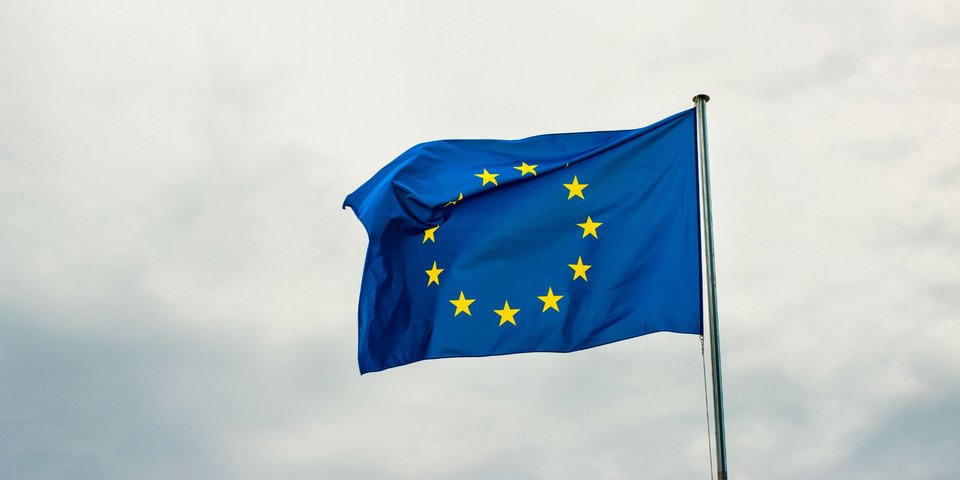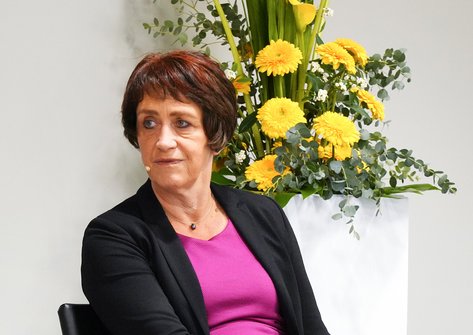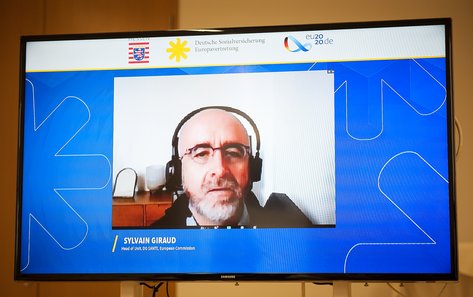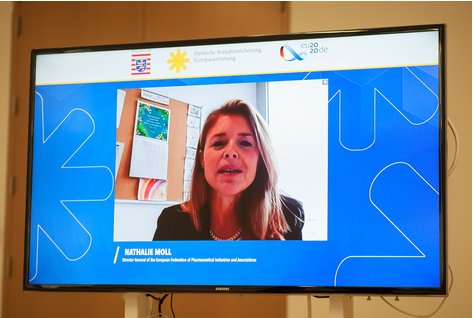
Panel 1: More supply reliability through strategic independence?
ed* Nr. 01/2021 – Chapter 3
The German SPD MEP Tiemo Wölken drew fundamental lines in his keynote speech: “Universal access to quality healthcare at an affordable cost for individuals and society is not only a fundamental need, it is one of the common values and principles in the EU and it is enshrined in the Charter of Basic Human Rights.” This also includes the supply of medicines. The COVID-19 pandemic shows that the EU needs to become more resilient in crisis situations. In particular, at the beginning of the pandemic major efforts were made to ensure coordinated action between member states. Temporary border closures and export bans or national stockpiling of medical supplies – these posed risks to EU-wide access to medicines and medical care.
This situation has highlighted the dependence on functioning supply chains. These extended beyond EU borders. Often, there is dependence on singular production sites in third countries. Wölken critically questioned whether the idea of bringing production back to Europe was a realistic scenario and the solution. Instead, he sees the legislator as having a responsibility to make the EU more attractive as a production location.

“Universal access to quality healthcare at an affordable cost for individuals and society is not only a fundamental need, it is one of the common values and principles in the EU and it is enshrined in the Charter of Basic Human Rights.”
Transparency in supply chains and diversification of production sites for supply reliability of medicines in the EU
Dr Doris Pfeiffer, Chairwoman of the Board of the National Association of Statutory Health Insurance Funds, shared the view that the member states must act with more solidarity in the distribution of medical goods. “Personal protective equipment are not high-tech products. Here, we must achieve adequate production capacities in Europe. A situation, where people around the world buy former penny products from each other at top prices must not be allowed to recur.”
The German healthcare system would also have to adapt to the new framework conditions. It was important that the systems in Europe remained functional and financially viable. This also applies to the supply of medicines. Inequalities in accessing the supply of medicines should be reduced.
Pfeiffer’s main concern was to achieve transparency of the production and supply chains of essential medicines. This is the only way to identify production problems that affect the supply situation in Europe. The diversification of production sites also plays a key role in this respect.

“In Europe, we need more transparency regarding the production and distribution of medicines.”
Solidarity and cooperation to protect public health in the EU
Together, we are strong. This is the EC’s guiding principle during the crisis. Sylvain Giraud, Head of the Medical Devices Unit from the Directorate General for Health highlighted: “We need to strengthen the coordination of member states’ authorities in crisis situations. The EC will propose to strengthen the capacities of the ECDC and EMA agencies.” The member states, on the one hand, acted in a fragmented and initially uncoordinated manner due to different national requirements and preconditions. In future, the agreement between member states from Helsinki to Lisbon and the EU’s institutions must play a more important role.
The EC sees three areas for action: Firstly, the European Centre for Disease Prevention and Control (ECDC) and the European Medicines Agency (EMA) should be given central functions and tasks in crisis management. Legislative proposals were published in autumn 2020. The EC also intends to establish an agency for advanced biomedical research and development, following the example of the US Biomedical Advanced Research and Development Authority (BARDA). The legislative text is expected in 2021.
Secondly, functioning systems with adequate insurance cover provide social security and ensured economic prosperity as well as social cohesion. The prerequisite for this is that the social security systems are resilient in crisis situations such as this.
The third element is availability and supply reliability, as well as ensuring that all EU citizens have access to medicines. Bottlenecks could be of a structural nature, for example based on insufficient national legislation.

”The crisis shows how important health systems, health coverage insurance and social protection are as a basis for economic prosperity and social cohesion.“
Europe as a location - financial viability and attractiveness of the framework conditions
More Europe - this was also the headline of the Austrian SPÖ (Social Democratic Party of Austria) MEP Dr Günther Sidl’s statement.
The crisis had shown that member states with good healthcare and social welfare systems had so far come through the crisis better. “A stronger preventive approach must be implemented in European legislation.” Therefore, now is not the time for discussions about liberalisation and privatisation of healthcare systems.
With regard to the discussion about the attractiveness of locations for manufacturers, not only production conditions but also research and development should be considered.

“A stronger precautionary approach needs to be implemented in European legislation.”
Greater transparency of the provision of care will make it possible to gear care and innovation more closely to the actual benefits for patients in Europe
Nathalie Moll,Director of the European Federation of Pharmaceutical Industries and Associations, draws many lessons from the crisis. The main focus of the industry is on preparedness planning for critical medicines. Manufacturers have been busy with this since December 2019 to be able to meet the demand.
She also spoke out in favour of more transparency and information on the existing needs. “Increased capacity to monitor and assess national and regional health needs reinforces European solidarity.” Until now, it has often been unclear which medicines can be demanded by member states as well as when, where and in what quantities.
The industry sees key areas of action in the need for more European solidarity and joint capacities to solve cross-border health risks in a cooperative manner. The ecosystem for research and development must also be made sustainable. This cannot be switched on or off at the push of a button. A large proportion of innovative medicines (77 per cent) would continue to be produced in Europe. In any case, the industry is in a position to significantly increase the production of individual medicines in a pandemic situation.


